AUGUSTA — “Hey hey, ho ho, Melville has to go!” protesters chanted Saturday afternoon as they gathered in front of the Kennebec County Courthouse.
Under the maple tree on the front lawn of the courthouse sits the former U.S. Supreme Court Justice Melville Fuller statue which, on Saturday, was decked with flags that said “Black Lives Matter” and George Floyd’s words, “I can’t breath.”
The group of protesters gathered to voice their concerns about Fuller’s statue this weekend after the Maine Supreme Judicial Court requested the county consider moving the statue in light of the racial unrest around the country and a move by many states to take down monuments.
The Kennebec County Commission has taken no action to take the statue down, but instead is working to vet Melville’s past, according to Commissioner Patsy Crocket.
But for protesters, the county has no excuse to keep the statue in place.
“We don’t know why the statue is up,” said protest organizer Isreal Mosley. “They should have known when they put the statue in that it was a problem. The Kennebec County Commission is pretending like they don’t know what’s going on or why it’s a problem, but it’s just taking up time for it to come down.”
Melville Fuller served as chief justice on the U.S. Supreme Court after being nominated by President Grover Cleveland in 1888. In 1896, he voted with the 7-1 majority in Plessy v. Ferguson — a decision that upheld legal segregation.
Fuller, an Augusta native, died in 1910.
Though that court ruling was overturned in the 1954 Brown v. Board of Education decision, the protesters and others charge that many Americans are still living with the lasting effects of the Plessy case. Some held signs Saturday that read “Separate was Never Equal,” referring to the “separate but equal” doctrine upheld in Plessy, which found the separate but equal facilities and services did not violate the U.S. Constitution.
Mosley believes there is no excuse for not taking the statue down as “none of it excuses the ignorance of glorifying the hate and suffering people have caused.”
“Black folks know the history, we have to,” Mosley said. “We have no choice because it’s all around us and impacts us every day.”
To protester Brittany Smith, taking down the statue symbolizes the fight to take down racism within the country.
“People may think that it’s just a statue, but we need to show solidarity,” she said. “We want to show that we mean it, and we want racism to come down. We want all of these structures to come down and to be gone.”
Smith, a Gardiner resident, and Mosley have gathered in protest each week since the June 7 Black Lives Matter protest in Augusta.
They were adorned in sweatshirts with the late Civil Rights leader Rep. John Lewis’ face and gave out free snacks to those who participated. Smith held a sign that said, “The judges decided, let us not be divided.”
“I think it’s important especially with what’s going on in America right now to remove every form of racial discrimination that’s in our country, and the statue is a symbol of that,” Smith said. “The statue shouldn’t be up. (Fuller) was for segregation, he wanted to rule against civil rights and we don’t need to have a display of that as a reminder of what happened.”
Another protester, Bethany Labor, said she was raised to treat everyone equally.
Labor pointed out that keeping Fuller’s statue in front of the courthouse symbolizes systemic racism that both she, her husband and people who she knows, face on a daily basis through their jobs, medical care or through school.
“I think that if I were on trial, knowing the history of the statue and walking into the courthouse, all I can see is someone sitting on the throne, in a memorial spot, overseeing me as I walk in the door — casting his own judgment,” Labor said. “Honestly, that does not set a good precedent to me. That makes me nervous, like I wouldn’t get fair representation. It needs to come down.”
The protesters stood in front of the statue for three hours and were joined by about four others. Mosley pointed out it is important to recognize even one voice of someone who can speak for all.
“We want people to see that we are trying to make a difference and have heard about their fears and that we feel the same way,” he said.
Send questions/comments to the editors.


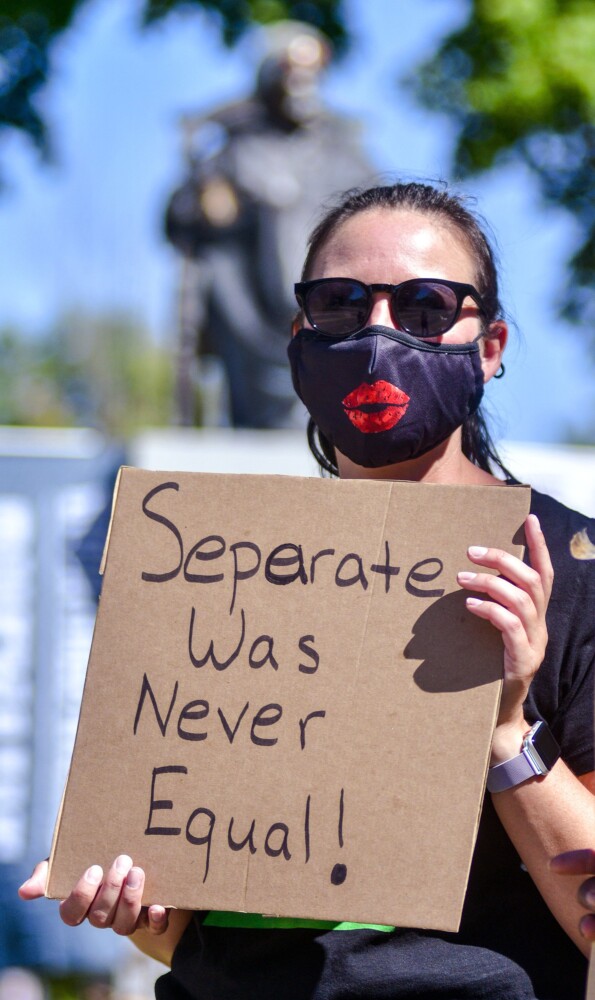
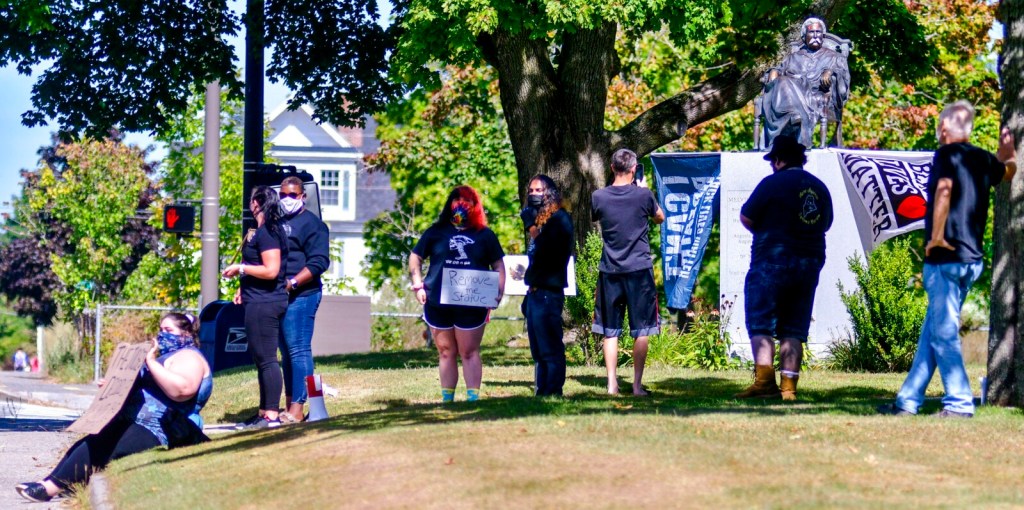
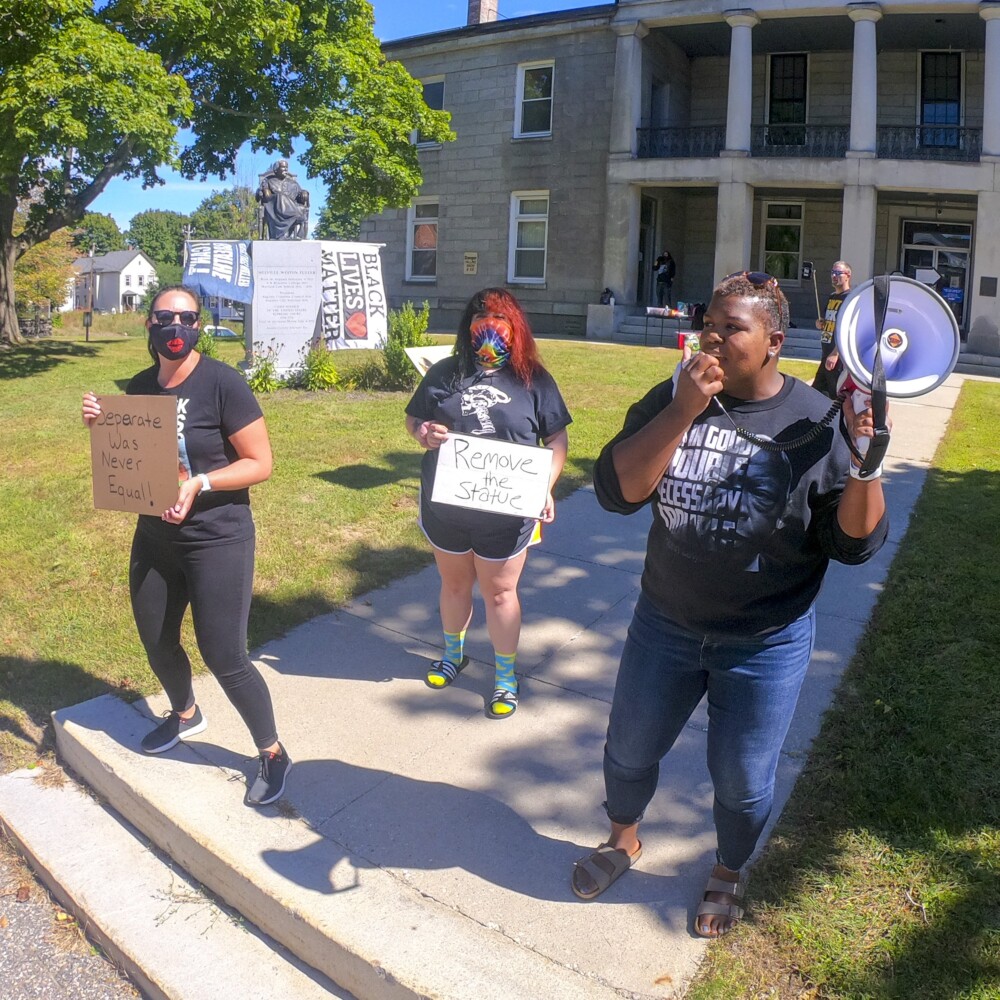
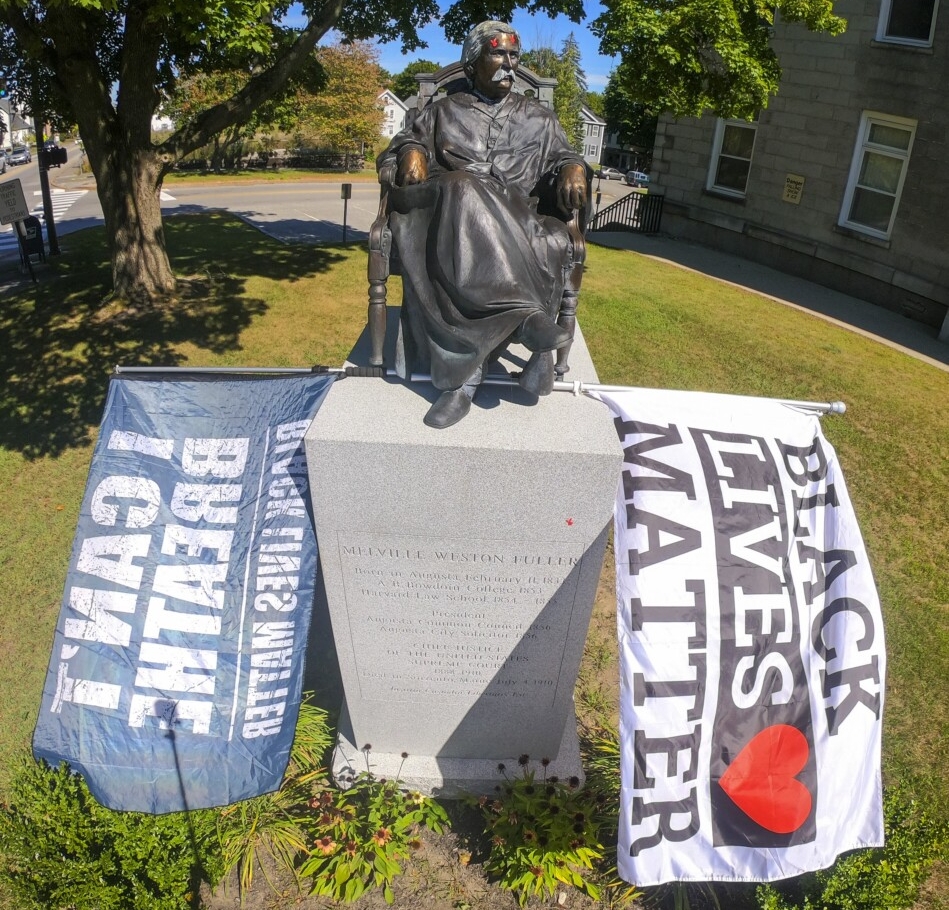
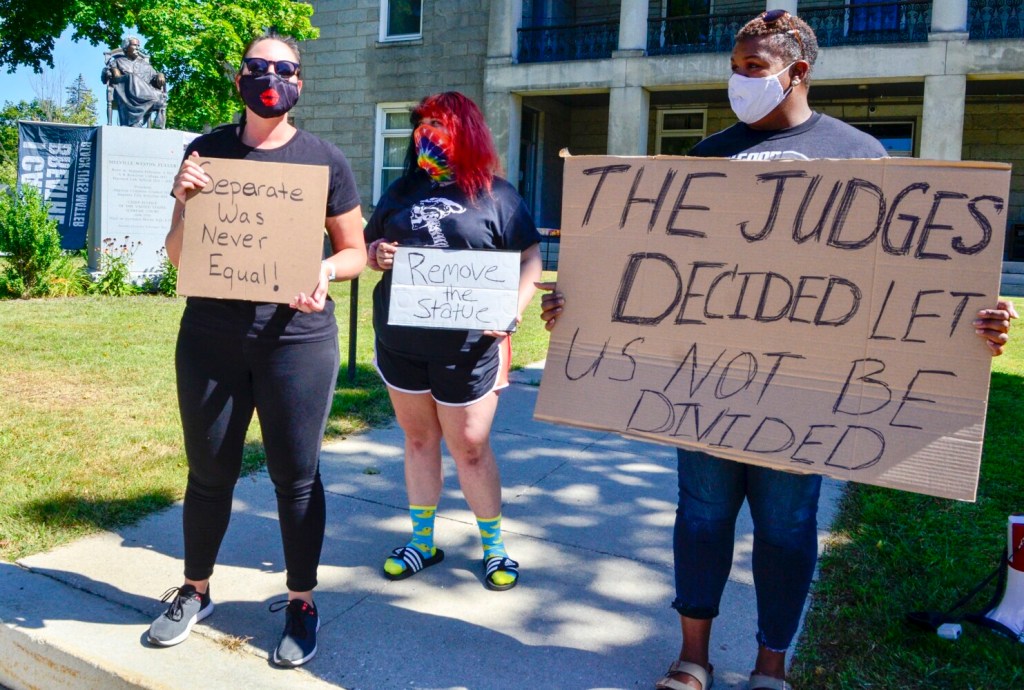
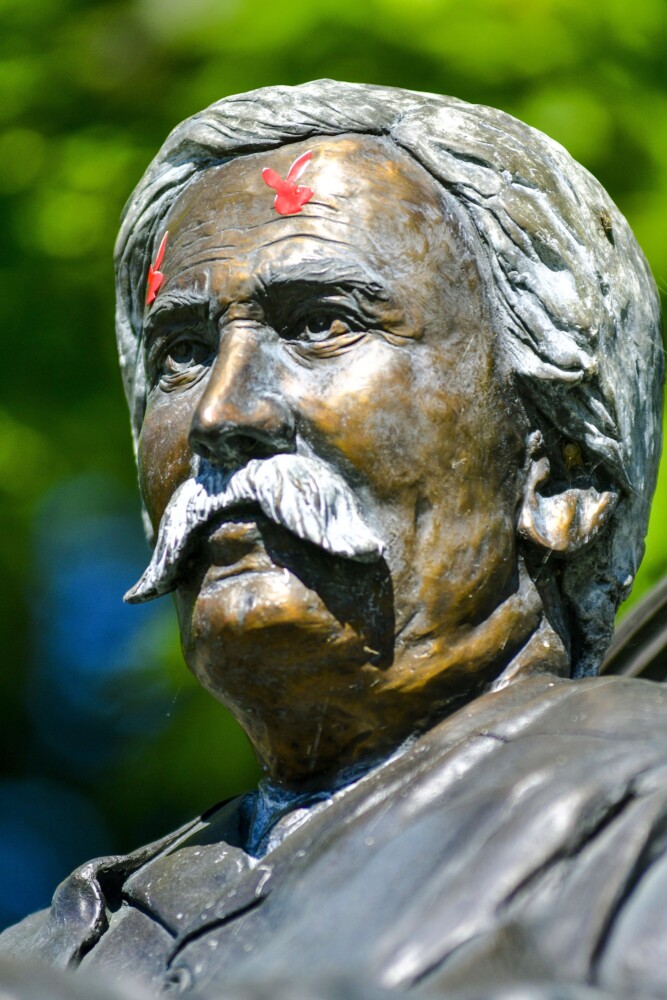
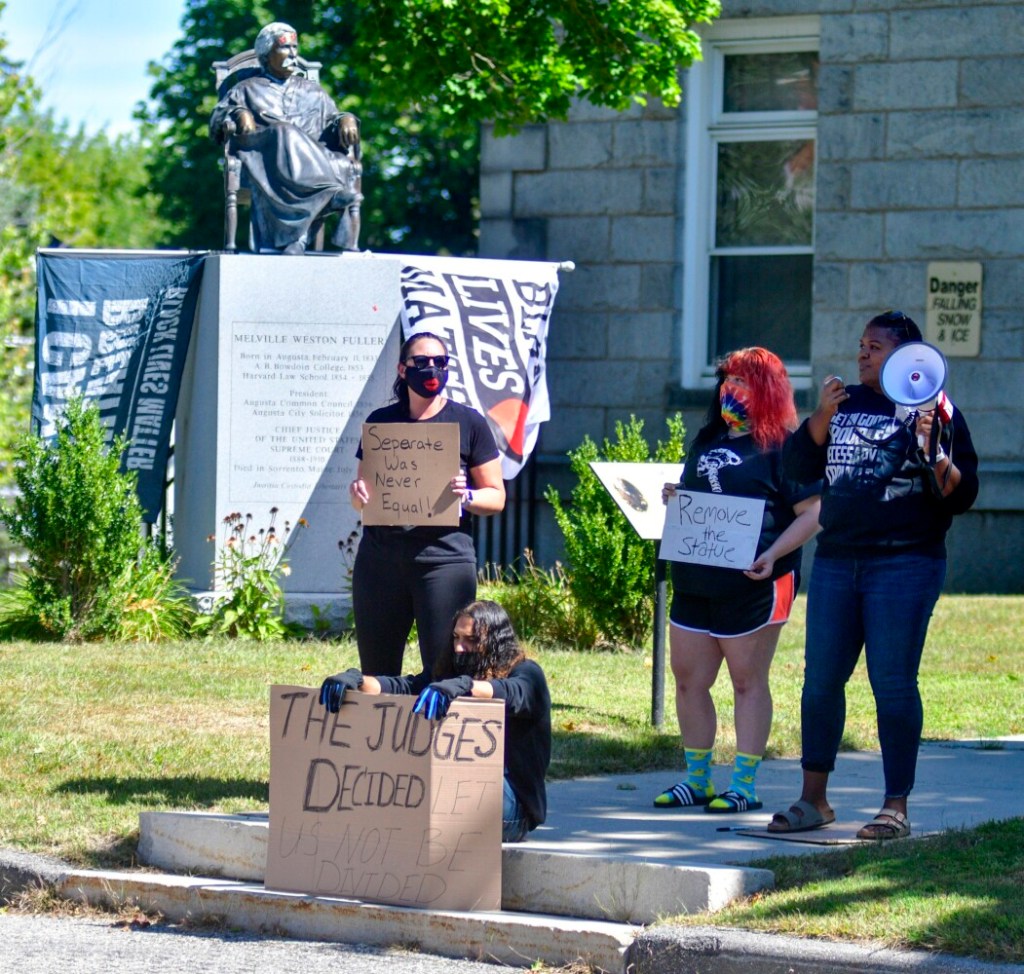
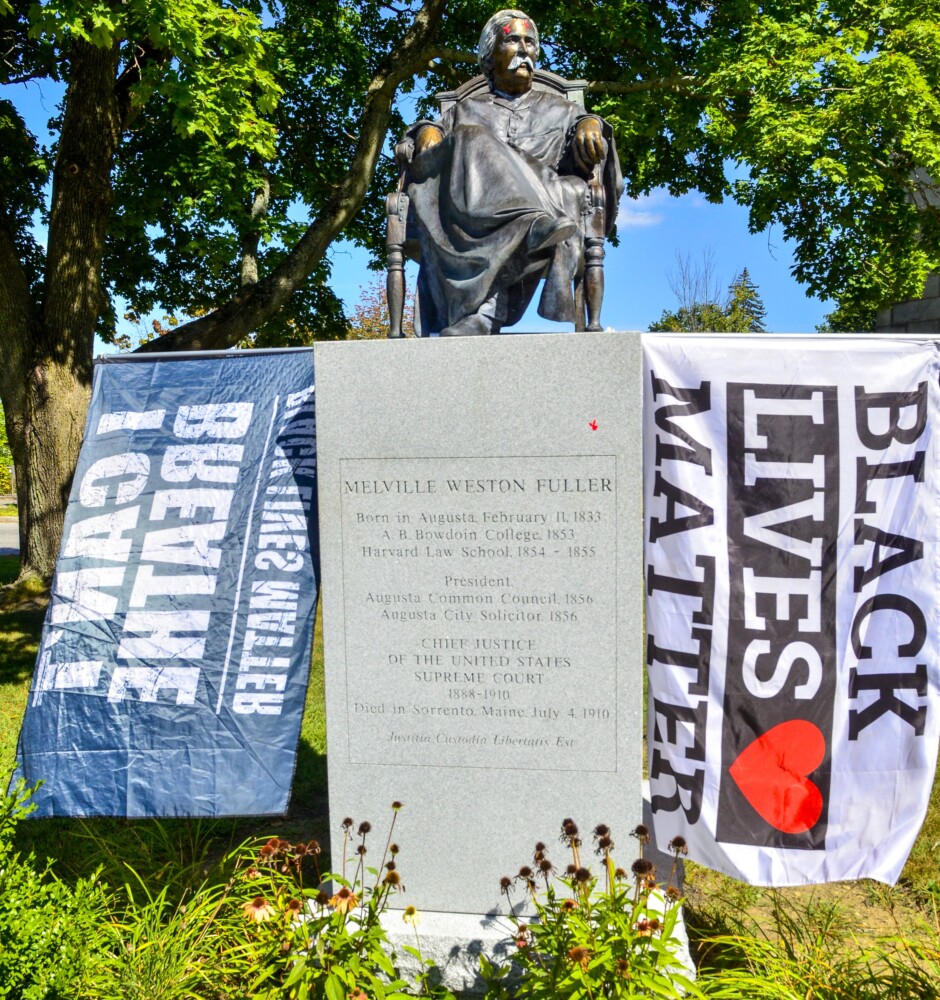
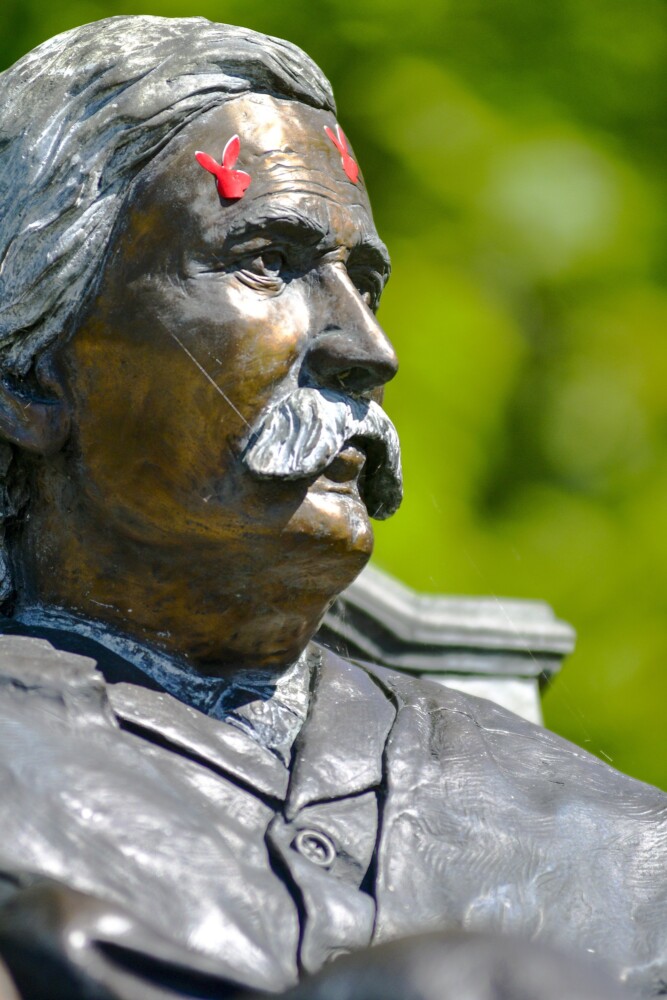

Comments are no longer available on this story